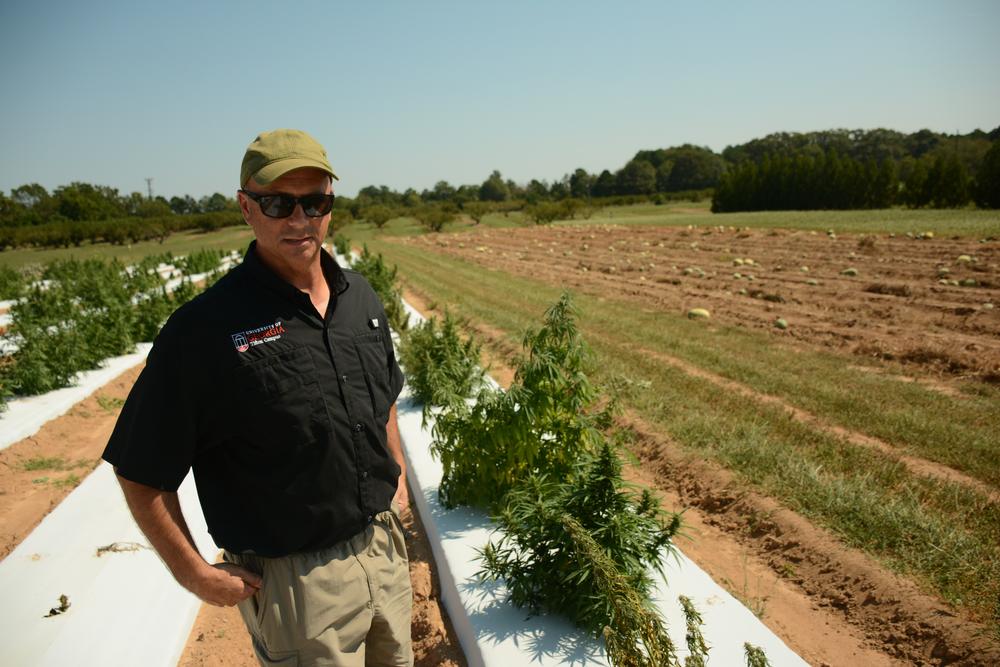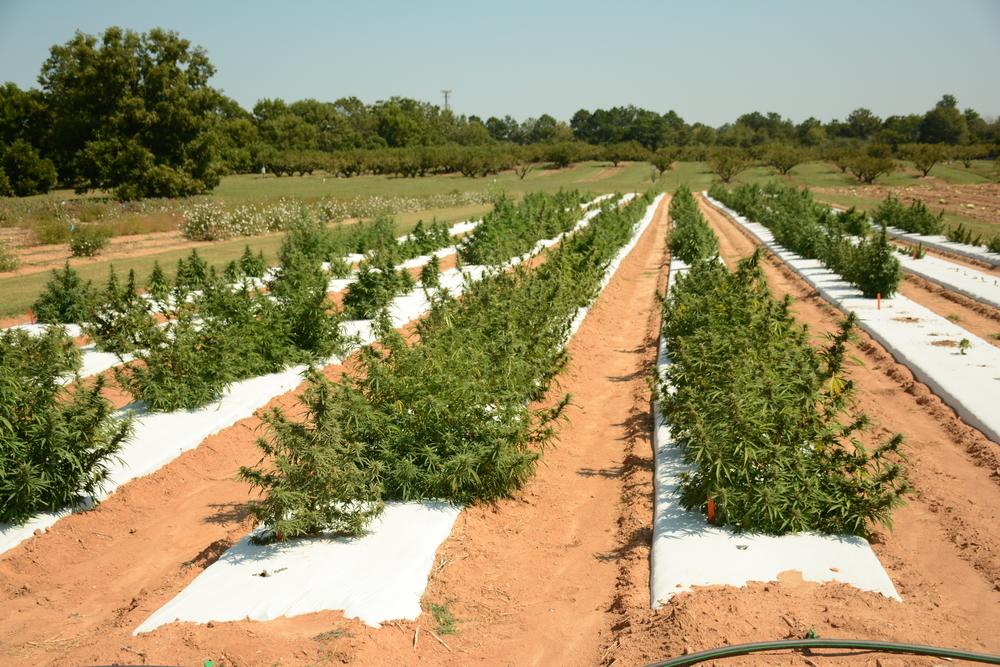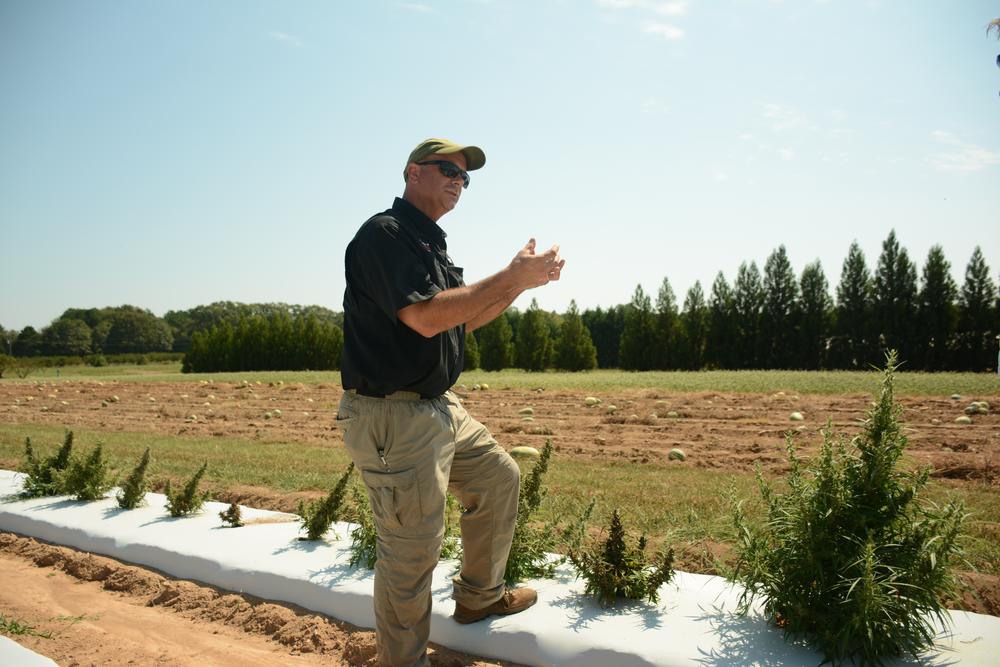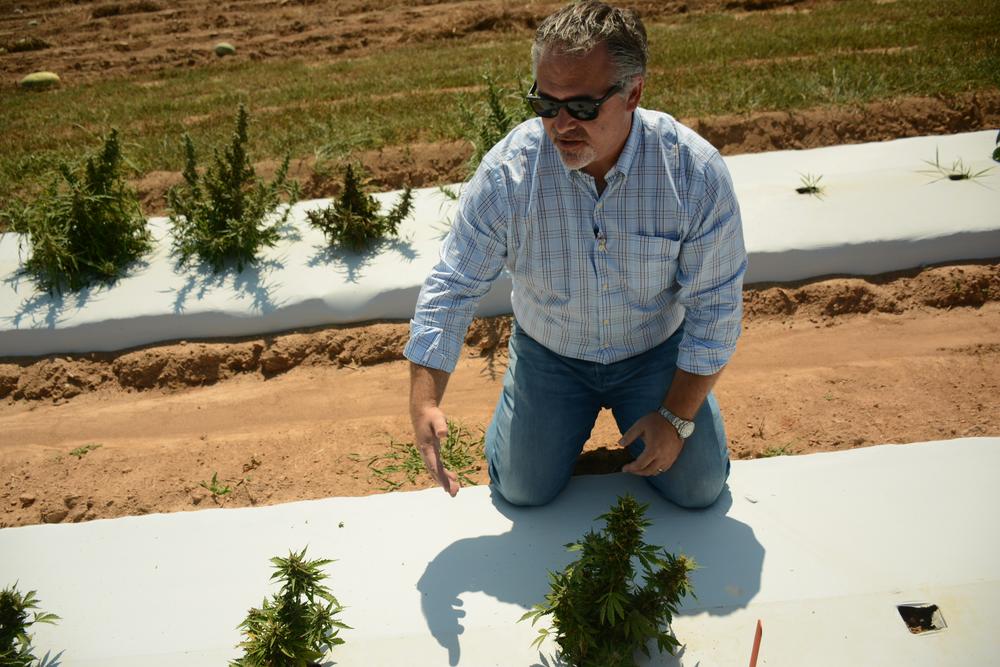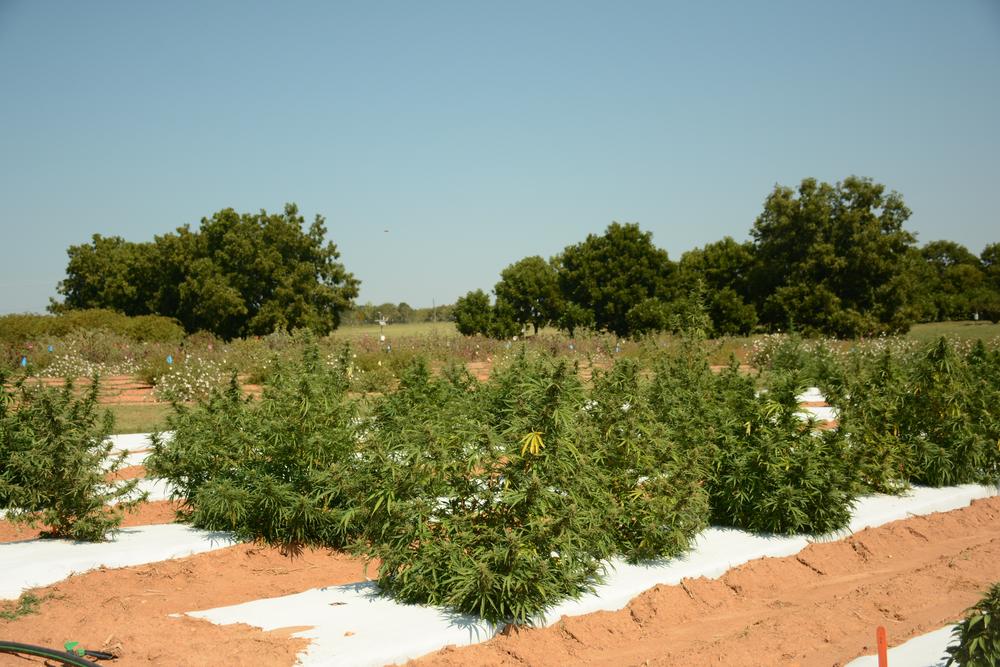Section Branding
Header Content
A Look Inside Georgia's First Legal Industrial Hemp Field
Primary Content
The smell hits you before anything else. Rows of green plants sprout from brown dirt, covered by a white tarp.
It’s the first legal industrial hemp field in the state of Georgia in decades. Congress outlawed the plant with the Controlled Substance Act of 1970, which classified it as a schedule one drug.
The field maintained by the University of Georgia has 24 different varieties of the plant and about 72 plots. The plants have been in the ground since early June and are overseen by Tim Coolong, an associate horticulture professor.
“What we wanted to do this year, since it’s kind of our first go at it, was to evaluate as much genetic materials we could to see if there was anything that would be a good fit for Georgia farmers,” Coolong said, walking through rows of the newly legalized crop.
It’s a result of the Georgia legislature passing the Hemp Farming Act at the end of this year’s legislative session.
The bill, signed back in May, allows “farmers and businesses to begin to cultivate, handle, and process hemp and sell hemp for commercial purposes.”
Industry Goal
As Coolong watched over his budding crops, he detailed what they were looking for in this round of planting. For each variety, he wanted to learn how much Cannabidiol or CBD, which is an active ingredient in cannabis derived from the hemp plant, was being produced per acre. He also wanted to track disease data and the ease of harvest. After that, the university can make recommendations to farmers on what strands they should grow.
Some of the hemp plants take just 50 to 60 days to grow. And in states like Kentucky, Coolong said some farmers are getting 1,000 pounds of dry matter per acre.
But as some of the plants in the pilot program start to flower, Coolong noticed something. The plants were susceptible to southern blight.
“That’s one of the challenges I think farmers are going to have,” he said. “We don’t have any labeled synthetic chemicals for this. So, you’re going to have to do a lot of cultural practices.”
He said they’ll need to rely on crop rotation and figure out which strands grow better in certain parts of the state.
But there are benefits to farmers who may include hemp in their rotation.
“From a harvest point of view, you can take this and strip it really quickly,” Coolong said. “Versus if you have a huge plant you’re having to hack the branches off of it and strip them individually.”
“You may get a much higher per plant yield with those big plants, but with planting density and the ease of harvest, you may be more profitable this way,” he said.
There’s also a learning curve on the processor side. GA Xtracts is a hemp manufacturer that cultivates and processes the plant. CEO Rob Lee said the technology isn’t readily available yet to make cultivating the plant as efficient as possible.
“The equipment doesn’t exist right now to really maximize these crops,” Lee said, touching one of the plants.
As he explored the budding flowers of one of the crops, he said it felt sticky and oily, a sign of CBD’s presence but one that could cause problems down the line.
“Part of the issue is the oil is very dense,” he said. “When harvesting this plant, that oil will start coming out and gum up the blades.”
For now, growers are reduced to hand picking and harvesting the crop. As Lee examined the pilot field overseen by UGA, he seemed pleased with how some of the plants were turning out.
“When we’re extracting this out, we want the flowers to be as big as possible and as potent as possible,” he said. “That’s where over 90% of all the CBD is located.”
Hemp versus Marijuana
The Hemp Farming Act passed at the same time as Georgia’s Hope Act, which legalized medical marijuana. The plants look the same and are both a part of the cannabis family. But the difference is in the chemical makeup.
Hemp, is federally defined as having .3% of THC or less. That’s the chemical that gets you high when ingesting marijuana. Instead, it has high amounts of CBD. Most uses of CBD oil center around pain management and helping with anxiety among other things.
The differences between CBD and THC have led to confusion about prosecuting people for possession. Earlier this year, solicitor generals from a number of metro-Atlanta counties announced they would not press charges, since there is no field test that can determine how much THC is in a plant.
In fact, recently one police officer in Gwinnett County was recorded handing marijuana back to a person he pulled over, saying he wasn’t able to seize it.
But, for processors like GA Xtracts, they are testing at each stage once the plant is cultivated to make sure the THC levels are remaining below the legal level.
Who can grow it?
Colleges and universities that are a part of the University System of Georgia get the first crack at growing and researching industrial hemp, but farmers probably won't truly get in the business until 2020.
To becomes a legal grower, licenses cost $50 per acre with a maximum fee of $5,000. And for processors who would take the plant, strip out the CBD oil and make products, it’ll cost them $25,000 for an annual fee.
There are other protections baked into the law to prevent hemp fields from turning into marijuana ones.
Growers must provide GPS coordinates of where their farms will be, they must allow the GBI and other law enforcement agencies to inspect the field, and, if a plant tests for more than .33% of THC, all of the crop must be destroyed.
Despite the newness of the industry, Coolong said he thinks farmers can and will have a successful crop when they first start planting.
Potential Products
Once the agriculture and processing side are complete, what do final products look like? Well, according to Lee, they come in a variety of forms, powder, edibles, and even substances like lotion.
He said the powder is the most potent form but they’re also working to create pills and sell those to pharmaceutical companies.
But that isn’t the only role Lee wants his company to play.
“We need to step up and educate everyone from universities to state legislators,” he said. “This isn’t a close looped business opportunity; a lot of people can be involved in it.”
He said since the industry is so new, they also want to bring quality control to it. As for people hoping to break in, he said small farms have the chance to make an impact, but they have to be serious about it.
“This isn’t something you should do as a hobby,” he said. “You have to take it seriously, Make sure you do your research. Be sure you know what UGA is doing and other colleges and universities.”
Although it’s just been legalized, both Lee and Coolong believe industrial hemp fields could be the next cash crop in Georgia. After the science and genetics are worked out, it’s just a matter of time before these fields start sprouting up.
